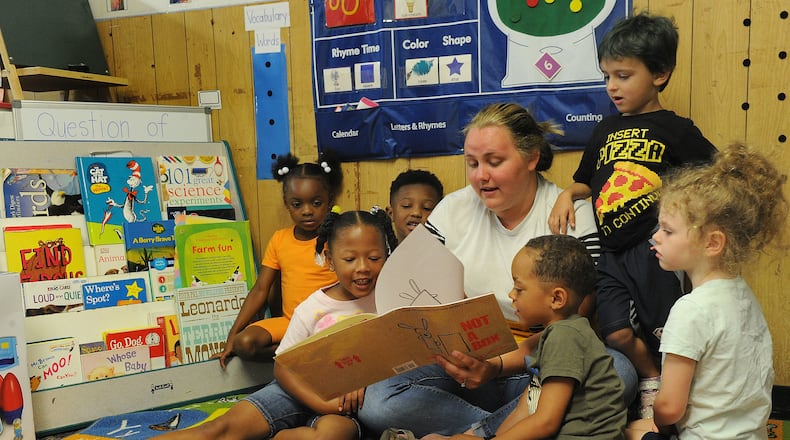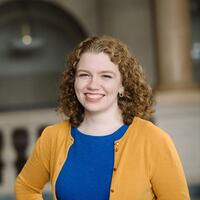Build Back Better passed the U.S. House of Representatives but stalled in the Senate. Fedor’s bill, Ohio Senate Bill 318, does not have specifics on financials.
Fedor is running for lieutenant governor on the Democratic ticket alongside former Cincinnati mayor John Cranley.
Fedor said expanding preschool access and funding would help families who have left the workforce during the pandemic to return to work.
“It is clear that many parts of our state do not have affordable childcare options,” she said.
Preschool availability to all 4-year-olds in Dayton was a hallmark of former Dayton mayor Nan Whaley’s campaign. She is now running on the Democratic ticket for governor against Cranley.
The leading local organization that pushes to get kids ready for kindergarten, Preschool Promise, is funded by Montgomery County, the City of Dayton and local philanthropists.
Preschool Promise has gradually expanded from pilot programs in Dayton and Kettering. It now serves children who live in the public school districts of Dayton, Jefferson Twp., Huber Heights, Kettering, Mad River, Northridge, Trotwood-Madison and West Carrollton.
Robyn Lightcap, director of Preschool Promise, said there aren’t enough details yet to know how the bill would affect the funding for Preschool Promise. In 2016, Dayton voters passed an income tax increase of 0.25% that allows all Dayton 4-year-olds to go to preschool.
But Lightcap said childcare in general needs more funding.
“If the Federal government and the state increase investment in preschool, we would be able to focus our local funding to address the many significant gaps that would most certainly still exist in making high-quality child care and preschool available for all families,” she said.
More funding could go to helping daycare centers hire more workers and assisting families in affording childcare, she said.
Lightcap said a high-quality, private preschool costs about $15,000 a year, and that still doesn’t address the gap in teacher pay between preschools and kindergarten teachers, who are public school teachers. Lightcap said any universal pre-K in Ohio should be affordable, but also provide options for families, a high-quality education for all children and pay their teachers well.
Ohio has about 120,000 kids in each grade level in Ohio, according to the Fordham Institute.
Opponents of the bill question how much the program will cost Ohio when the federal money runs out. If Build Back Better passes and Ohio accepts the money, Ohio would have to fund 40% of the program by year six.
That’s something that worries Greg Lawson of the Buckeye Institute, a conservative think tank. He noted there is plenty of federal money available right now, but that money won’t be there forever.
Lawson said he also believes there isn’t enough evidence to say absolutely that universal preschool is the best option for everyone. He pointed to a Tennessee study that came out earlier in 2022 and showed lower-income children who attended preschool in Tennessee did the same or worse on standardized testing as their peers who did not attend preschool.
Fedor, though, pointed to the state of Georgia, which has a lottery system for free preschool, and noted other studies have shown lower-income kids do better in school when they attend preschool.
“Maybe it’s not just how much you spend, but how do we structure these programs, and should we have maybe a more limited program that targets certain students,” Lawson said.
About the Author

